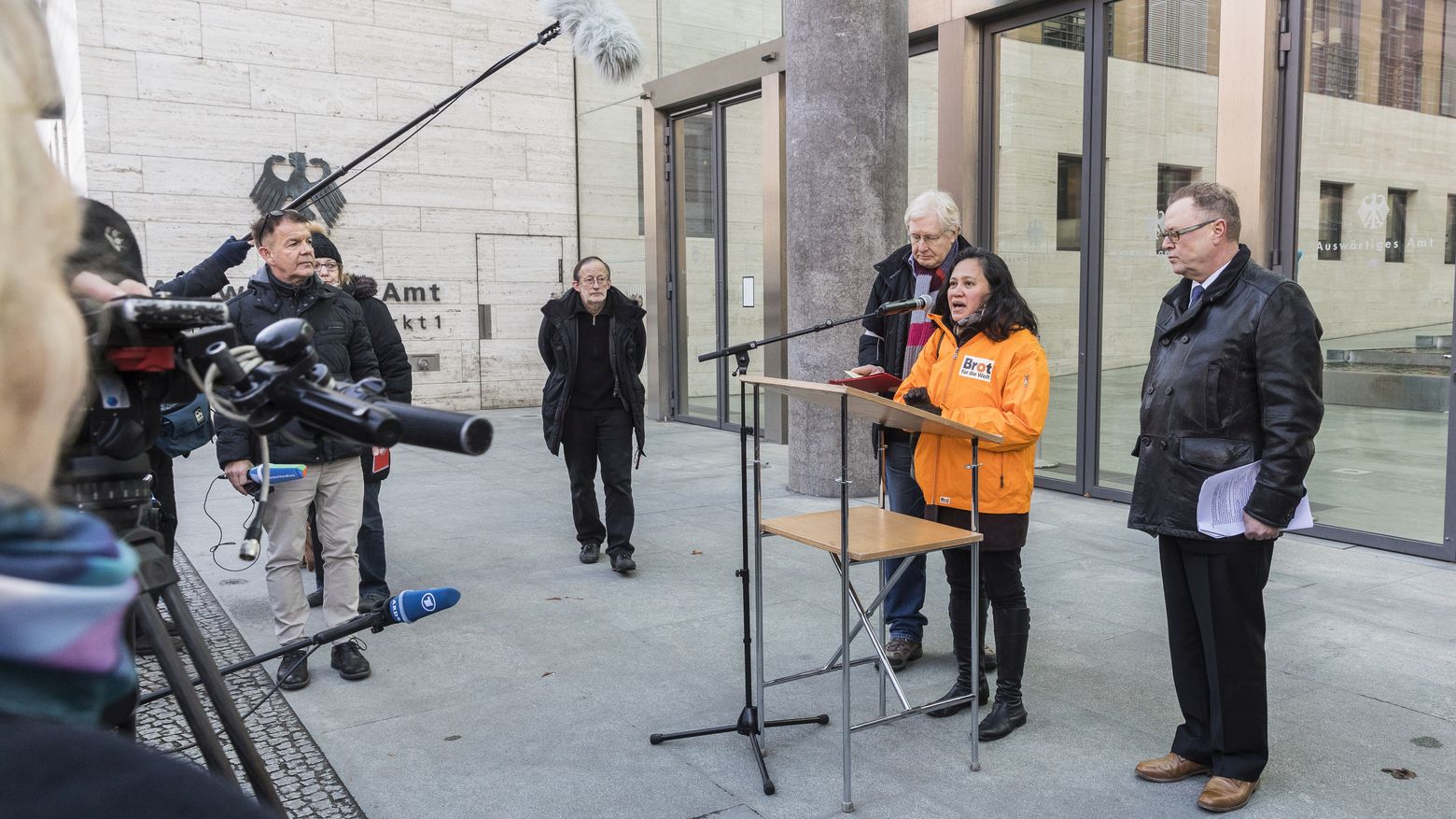I am here on behalf of the Action Group on Erosion, Technology and Concentration (ETC Group) in solidarity with the men and women farmers of Germany’s protest at the international conference of the ministers for agriculture.
I am from the Philippines where 25% of the labor force or more than 10 million are in the agriculture sector. We have one of the lowest rate of agricultural mechanization in Asia and the government aims to address this through program funded by Japan, a global producer and exporter of farm machineries. The introduction of imported mechanized rice combine harvesters, threshers and seeders are already displacing farm labor, especially seasonal workers, landless farmers and rural women. These machines are widely known as “beast” in the local language because of their adverse impacts on smallscale farmers, especially the landless and seasonal workers.
As it was 50 years ago in the Green Revolution, the aggressive digitalization of agriculture is being imposed from the top to those at the bottom. Digital agriculture is heavily controlled by a handful of huge corporations that dominate the global market in seeds, agrochemicals, machineries and data. Consolidation and mergers in recent years within and between sectors in agriculture, in the upstream and downstream, as well as with non-traditional players, are largely driven by digitalization in agriculture and the greed for profits. Every information on the farm has to go into computers that process Big Data to make decisions on the farm, disempowering and further marginalizing farmers. Smallholders and peasants who do not have the means to afford nor understand these technologies are not even factored in digital equation beyond lip service. This runs counter to the principles enshrined in the UN Declaration on the Rights of Peasants.
We call for comprehensive, participatory and transparency evaluation of digitalization of agriculture and its associated technologies at the national and regional levels. We urge the UN to provide a global mechanism and framework for assessment of potential impacts of new technologies. Who controls and who will benefit, what are the costs to society and the environment, what are the alternatives to these technologies need to be asked by society led by smallholders and peasants who currently feed at least 70% of the world’s peoples and who will be impacted most by new technologies





